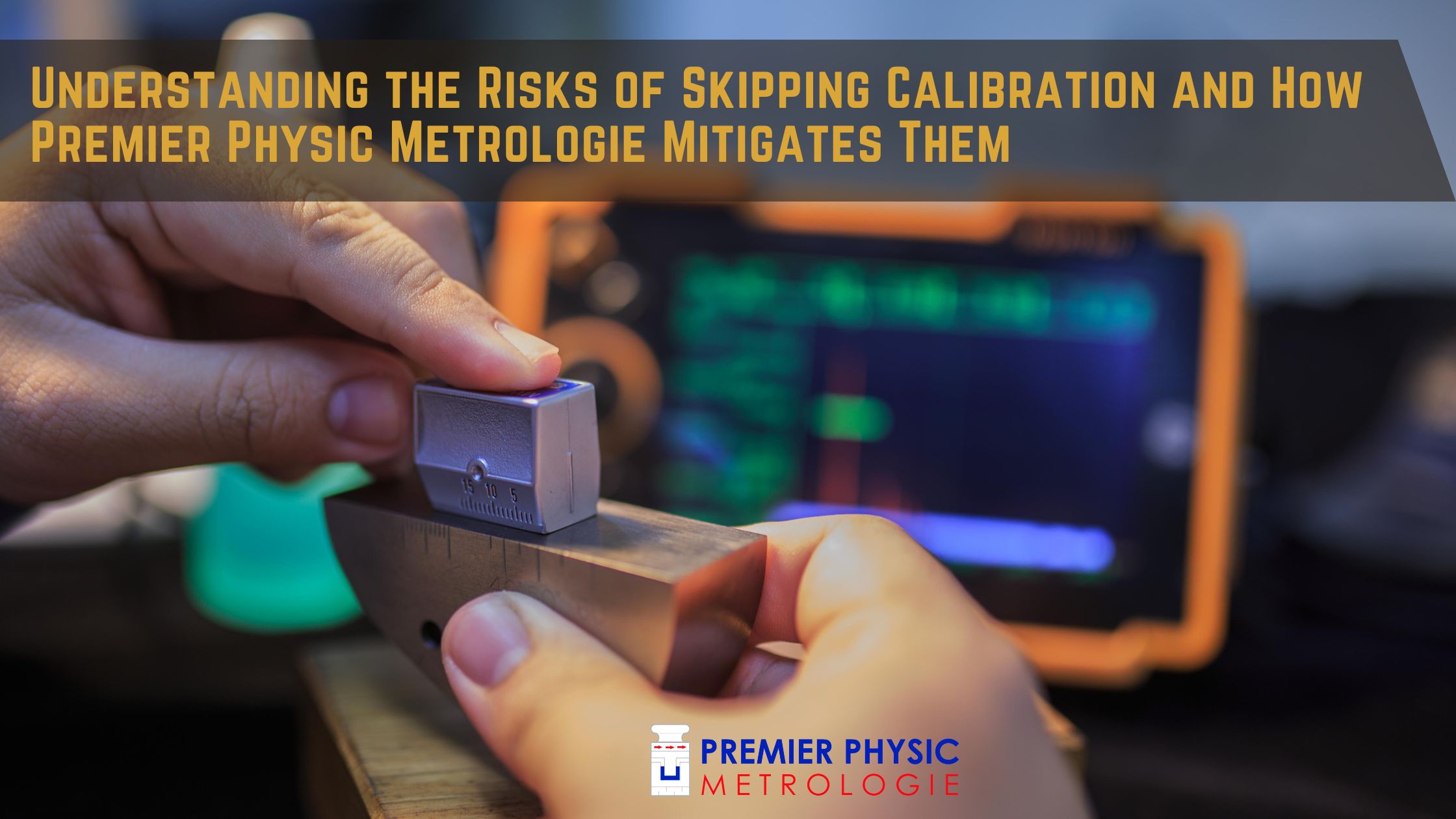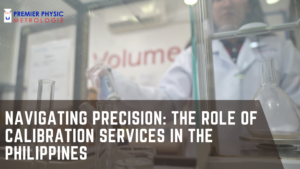Introduction
In industries where precision and accuracy are paramount, calibration is often regarded as a fundamental practice. Calibration ensures that measurement instruments function correctly and provide accurate readings, which is crucial for product quality, safety, and regulatory compliance. Skipping regular calibration or neglecting its importance can expose businesses to significant risks, including product defects, operational downtime, safety hazards, and even legal ramifications.
Premier Physic Metrologie (PPM), a leading provider of metrology and calibration services in the Philippines, understands the critical role calibration plays in various industries. For over two decades, PPM has helped businesses mitigate the risks associated with inaccurate measurements through comprehensive calibration solutions. In this article, we’ll explore the dangers of skipping calibration and how PPM’s services help organizations avoid these risks.
1. The Purpose and Importance of Calibration
a. What is Calibration?
Calibration is the process of comparing the measurements from a device (like a thermometer, scale, or pressure gauge) to a known standard to ensure accuracy. When an instrument is found to be inaccurate, adjustments are made to bring it back to the correct range. The process ensures that measurement tools are producing reliable and precise results.
Calibration serves several vital purposes:
- Ensures accuracy: Measurement errors can lead to incorrect decisions or faulty products, so calibration helps verify that instruments are functioning as intended.
- Maintains quality: In manufacturing and production, accurate measurements are essential to maintaining consistent product quality.
- Ensures compliance: Many industries are regulated by standards and require regular calibration to ensure that processes meet specific guidelines.
b. Why Regular Calibration is Essential
Calibration is not a one-time event—it needs to be done regularly because measuring instruments can drift over time due to wear and tear, environmental changes, or mechanical stresses. Regular calibration helps ensure:
- Reliable measurements: Instruments remain accurate and can be trusted for critical processes.
- Operational efficiency: Proper calibration can reduce production delays caused by faulty instruments.
- Regulatory compliance: Many industries have stringent rules for measurement accuracy. Regular calibration ensures that businesses meet the requirements of regulatory bodies like the ISO, FDA, or GMP.
2. The Risks of Skipping Calibration
Failing to calibrate instruments regularly can have severe consequences. Below are some of the key risks associated with skipping calibration:
a. Risk of Product Defects
One of the most significant risks of not calibrating instruments is the potential for product defects. In industries such as pharmaceuticals, electronics, and food production, accuracy in measurements is crucial. A slight deviation from standard measurements can lead to products that do not meet quality standards or specifications, potentially resulting in recalls or rejected shipments.
For example, in the food industry, failure to properly calibrate temperature sensors can lead to improper cooking or storage conditions, compromising food safety.
b. Compromised Safety and Increased Liability
When instruments provide inaccurate readings, safety risks increase, particularly in industries like healthcare, pharmaceuticals, and automotive manufacturing. Inaccurate measurements in medical equipment, for example, can result in misdiagnoses, improper dosages, or equipment malfunction, endangering patients’ lives.
Skipping calibration also increases a company’s liability. If faulty measurements lead to accidents, defective products, or safety incidents, companies may face legal action, penalties, or even criminal charges.
c. Non-Compliance with Regulatory Standards
Many industries operate under strict regulatory frameworks that require calibration at set intervals. Standards such as ISO 9001, ISO/IEC 17025, Good Manufacturing Practice (GMP), and FDA guidelines mandate regular calibration to ensure that products are safe and processes are within legal standards.
Skipping calibration can lead to non-compliance with these standards, resulting in regulatory fines, shutdowns, or even the suspension of operating licenses. Moreover, in industries like pharmaceuticals and food production, non-compliance can lead to product recalls, further damaging the company’s reputation and bottom line.
d. Increased Downtime and Repair Costs
Neglecting calibration can result in equipment failures that lead to operational downtime and costly repairs. Over time, instruments that are not calibrated may malfunction or break, interrupting production or operations.
For instance, a pressure gauge that hasn’t been calibrated might not detect an abnormal pressure build-up in a system, leading to a catastrophic failure. The cost of fixing such failures is often much higher than the cost of regular calibration.
e. Inaccurate Data and Misleading Reports
Many industries rely on precise data for decision-making, whether it’s in research, development, or production. Inaccurate data can lead to poor business decisions, increased costs, and wasted resources. For example, inaccurate environmental sensors in the agriculture industry could result in overwatering or underfeeding crops, directly affecting yield and profitability.
In sectors such as finance and research, inaccurate data can lead to erroneous reports that misinform stakeholders, potentially damaging the company’s credibility.
3. Premier Physic Metrologie’s Approach to Mitigating Calibration Risks
Premier Physic Metrologie has built a reputation for delivering accurate and reliable calibration services, helping organizations avoid the risks associated with skipping calibration. Here’s how PPM mitigates those risks through their comprehensive calibration solutions:
a. ISO/IEC 17025 Accredited Calibration Services
One of the cornerstones of PPM’s approach is its ISO/IEC 17025 accreditation, which is recognized internationally as the gold standard for calibration laboratories. This accreditation ensures that PPM’s calibration processes meet the highest standards of accuracy, reliability, and consistency.
By using accredited calibration services, businesses can rest assured that their equipment meets the stringent requirements set by regulatory bodies and that they are protected from non-compliance risks.
b. Calibration Across Multiple Parameters
PPM offers calibration services across various parameters, including:
- Temperature
- Pressure
- Humidity
- Mass
- Dimensional
- Electrical
By providing a wide range of calibration services, PPM ensures that businesses from multiple industries can maintain the accuracy of all their critical instruments, avoiding the risks of faulty measurements.
c. Regular Calibration Intervals and Preventive Maintenance
Premier Physic Metrologie helps businesses establish regular calibration intervals that fit their specific operational needs. By conducting timely and routine calibration, PPM prevents the accumulation of measurement drift, which can lead to inaccuracies.
In addition to calibration, PPM offers preventive maintenance services, identifying and addressing potential issues before they result in costly downtime or equipment failures. These services extend the lifespan of equipment, ensuring that it operates smoothly and efficiently.
d. Traceability to National and International Standards
All calibration services provided by PPM are traceable to national and international standards, ensuring that the calibration results are recognized and accepted by regulatory bodies. This traceability is essential for companies that must demonstrate compliance with global standards during audits or inspections.
PPM provides detailed calibration certificates that include traceability information, ensuring that companies can confidently present their calibration records during compliance checks.
e. Expertise in High-Precision Industries
PPM’s expertise extends across high-precision industries, including pharmaceuticals, healthcare, manufacturing, food production, and electronics. With extensive knowledge of the specific calibration needs and regulatory requirements of these industries, PPM helps businesses mitigate risks in critical sectors where accuracy is non-negotiable.
Whether it’s calibrating a highly sensitive laboratory instrument or ensuring that production equipment in a factory operates within specifications, PPM’s team of skilled technicians delivers precise and reliable calibration services that meet industry standards.
f. Data-Driven Calibration Solutions
PPM uses advanced calibration software and data analytics to track instrument performance over time. By analyzing calibration data, PPM can identify trends in measurement drift and recommend the optimal calibration frequency for each instrument. This data-driven approach ensures that calibration is performed at the right intervals, reducing the risk of over- or under-calibration.
4. Industries that Benefit from Regular Calibration
Several industries rely on regular calibration to maintain operational efficiency and compliance with regulatory standards. Premier Physic Metrologie serves a wide range of sectors, including:
a. Healthcare and Medical Devices
In healthcare, accurate measurements are critical for patient safety. Medical devices such as blood pressure monitors, ventilators, and infusion pumps must be calibrated regularly to ensure accurate diagnostics and treatment.
b. Pharmaceuticals
In the pharmaceutical industry, precise measurements are required for drug formulation, manufacturing, and quality control. Calibration ensures that laboratory equipment provides accurate readings, reducing the risk of product defects and regulatory non-compliance.
c. Manufacturing
Manufacturing industries use calibrated equipment to ensure that products meet specifications and tolerances. Calibration of pressure gauges, temperature sensors, and other instruments is essential for maintaining product quality and safety.
d. Food and Beverage
Food and beverage producers must maintain accurate temperature and humidity controls to ensure food safety. Calibrating environmental sensors and monitoring equipment is necessary to comply with food safety regulations like HACCP.
e. Electronics and Aerospace
The electronics and aerospace industries require extreme precision in their measurement tools. Calibration of dimensional and electrical instruments ensures that products are manufactured to exact specifications, avoiding costly defects or safety risks.
5. The Benefits of Partnering with Premier Physic Metrologie
Premier Physic Metrologie has been a trusted partner for businesses across the Philippines for over two decades. By partnering with PPM, companies can ensure:
- Compliance with industry standards: Accurate, traceable calibration ensures that businesses meet local and international regulatory requirements.
- Increased operational efficiency: Regular calibration reduces downtime and minimizes the risk of equipment failure.
- Improved product quality: Precise measurements lead to consistent product quality and fewer defects.
- Reduced liability: Accurate instruments lower the risk of safety incidents, legal issues, and regulatory penalties.
Conclusion
Skipping calibration can expose businesses to significant risks, from product defects and safety hazards to regulatory non-compliance and operational downtime. Premier Physic Metrologie provides a comprehensive solution to these risks through its ISO/IEC 17025 accredited calibration services. With over two decades of expertise, PPM helps businesses maintain the accuracy of their instruments, ensuring compliance, reliability, and operational excellence.
For Filipino businesses seeking to mitigate the risks of skipping calibration, Premier Physic Metrologie stands as a trusted partner, offering precision, expertise, and a commitment to quality.




